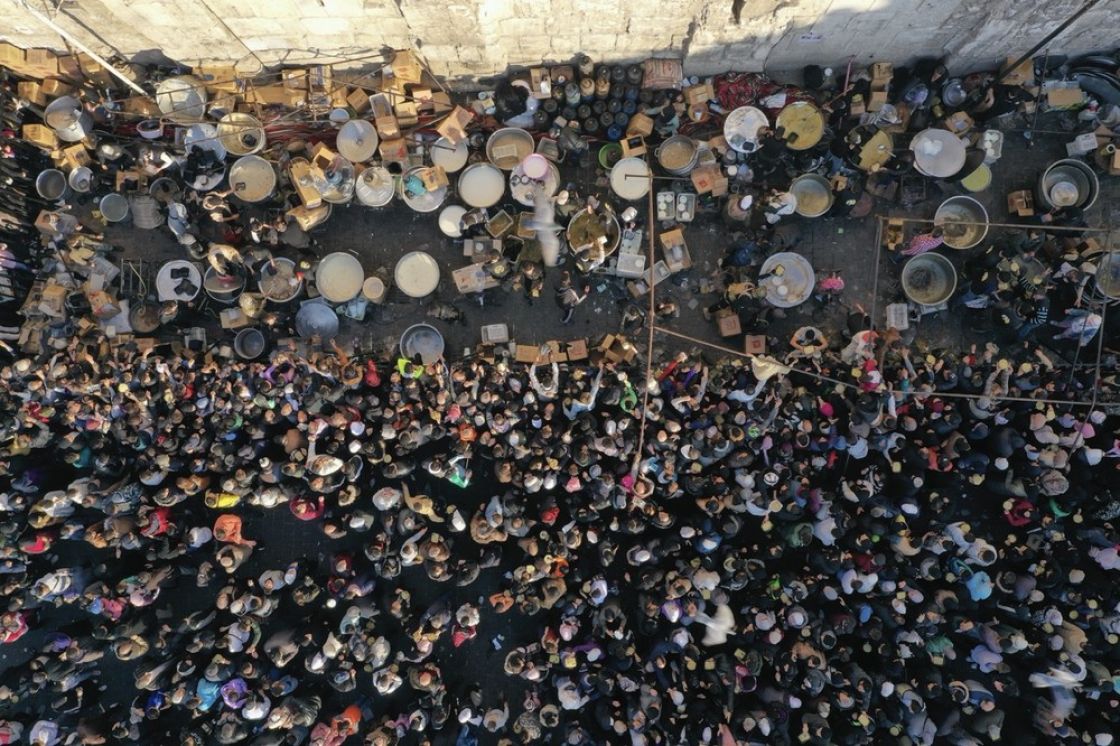Syria is entering a new phase after the victory of the Syrian revolution and the end of the regime’s 54-year rule under Hafez al-Assad and his deposed son, Bashar al-Assad. The two leaders were responsible for war crimes and crimes against humanity, crimes that many argue amount to genocide, particularly during the last 14 years. Despite overwhelming evidence and verified testimonies, there are still those who deny these atrocities or dispute their occurrence.
Remnants of the ousted regime, through media appearances and official social media accounts, work to conflate all military factions, misleading Syrians into believing that the future will mirror the oppressive past. These efforts persist despite the atrocities revealed from regime prisons and detention centers, including Saydnaya prison—one of hundreds notorious for the horrific torture of detainees and forcibly disappeared individuals.
Under Bashar al-Assad’s leadership, the regime committed crimes using internationally banned weapons, such as chemical agents, white phosphorus, Scud missiles, and barrel bombs. These acts were coupled with forced displacement aimed at demographic change, destroying cities and killing their inhabitants.
In the aftermath of the regime’s downfall, Syrian activists are discussing the possibility of enacting a law to criminalize and prosecute those who deny the crimes against humanity and war crimes committed by the deposed regime, which operated with direct support from Iran and Russia. They also advocate for legislation that bans glorification of the deposed president, viewing such actions as a form of complicity in crimes committed with premeditation.
Syrian Perspectives on Enacting Such a Law
Syria TV conducted a poll targeting residents of Damascus and its countryside, with 9,000 participants representing various age groups and intellectual backgrounds. The survey posed a specific question: “Do you support enacting a law to criminalize those who deny the genocide in Syria?”
The results showed overwhelming support, with 96.7% favoring the enactment of such a law, 2.4% opposing it, and 0.9% expressing neutrality.
Denying crimes committed by the Assad regime, along with Russia and Iran, represents either a rejection or a disregard for documented facts and evidence. Such denial may involve minimizing the scale of the atrocities or outright rejecting their existence, despite the extensive documentation from local and international human rights organizations and testimonies from survivors.
Investigating and documenting these crimes is integral to accountability efforts, paving the way for potential international legal action against the regime. The Assad regime mobilized its military forces against civilians, engaging in indiscriminate shooting, systematic shelling, and the destruction of cities, alongside mass arrests and raids affecting millions.
Conversely, denying these crimes insults the victims and their families, dishonoring their sacrifices for Syrian freedom and justice. It undermines principles of accountability and risks fostering a culture of impunity.
Why Criminalizing Denial of the Syrian Holocaust is Essential
Speaking on the importance of such legislation, Abdulrahman al-Hajj, director of the Syrian Memory Foundation, stated: “Issuing a law that criminalizes the denial of the Syrian genocide is essential. It is a part of justice for the victims, acknowledging their suffering and ensuring they are not victimized twice—first by the crime itself, and again by denying its existence.”
Inclusion of Denial Criminalization in Constitutional Law
In an interview with Syria TV, Abdulrahman al-Hajj emphasized that such a law should be deeply rooted in Syria’s legal framework. He stated that he “prefers the law to be part of the constitutional declaration and included as a constitutional article in the permanent constitution.”
Al-Hajj further argued that supporting the return of the Assad regime, endorsing it, or elevating its symbols constitutes a crime tantamount to endorsing genocide against humanity. He pointed to international precedents, noting, “The United Nations adopted a resolution condemning Holocaust denial on January 26, 2007, declaring that denial is equivalent to consent to genocide in all its forms. Similarly, the European Union adopted a framework decision on combating racism and xenophobia (2008/913/JHA), calling on member states to ensure that Holocaust denial is punishable by law.”
The Benefits of Criminalizing Denial for Syria’s Future
While conducting a survey on the streets of Damascus, respondents highlighted the potential benefits of criminalizing denial of the regime’s crimes, summarized as follows:
- Preventing Future Abuses: Denying crimes can serve as justification for ongoing violations or a prelude to their recurrence. Criminalizing denial may deter such abuses and reduce their likelihood in the future.
- Preserving Historical Memory: Denial distorts history, ignores victims’ suffering, and prevents future generations from learning from these atrocities. Criminalization can safeguard the integrity of historical records.
- Protecting Victims’ Rights: Acknowledging and criminalizing denial provides formal recognition of victims’ suffering, ensuring their experiences are honored and reinforcing the necessity of respecting human rights.
- Justice and Accountability: Denial impedes legal efforts to achieve justice, whether through international tribunals or domestic and international accountability measures. Criminalization fosters a culture of responsibility and accountability.
Balancing Legislation with Free Speech
While such a law is vital, it is equally important to balance it with the protection of free speech. Any legislation must ensure it is not wielded arbitrarily or repressively, allowing for legitimate legal and historical debates while focusing on preventing denialism that undermines justice and accountability.
Crimes That Cannot Be Forgotten
Finally, the most egregious crimes committed by the Assad regime against Syrians are etched into the memory of victims and cannot be denied or erased. These crimes—spanning from indiscriminate attacks with chemical weapons and barrel bombs to mass detentions and forced disappearances—represent a dark chapter in Syria’s history that demands acknowledgment, accountability, and justice.
This article was translated and edited by The Syrian Observer. The Syrian Observer has not verified the content of this story. Responsibility for the information and views set out in this article lies entirely with the author.


